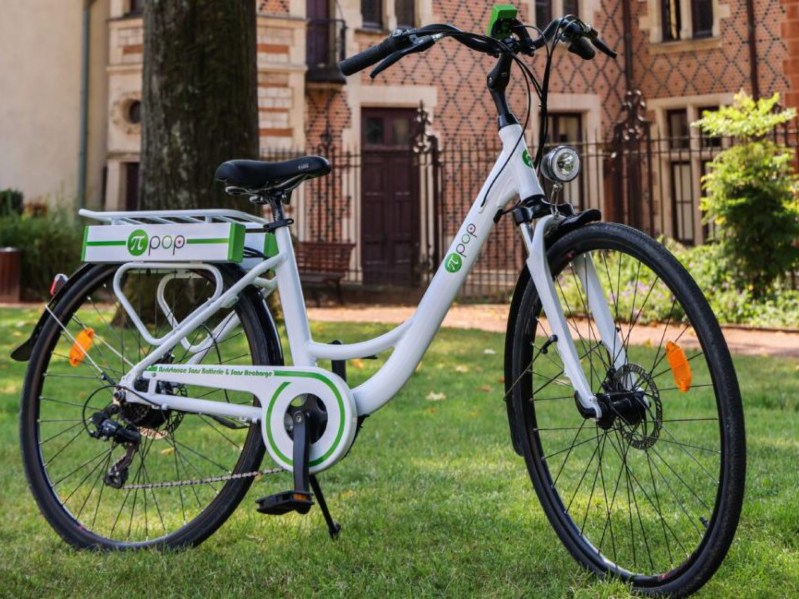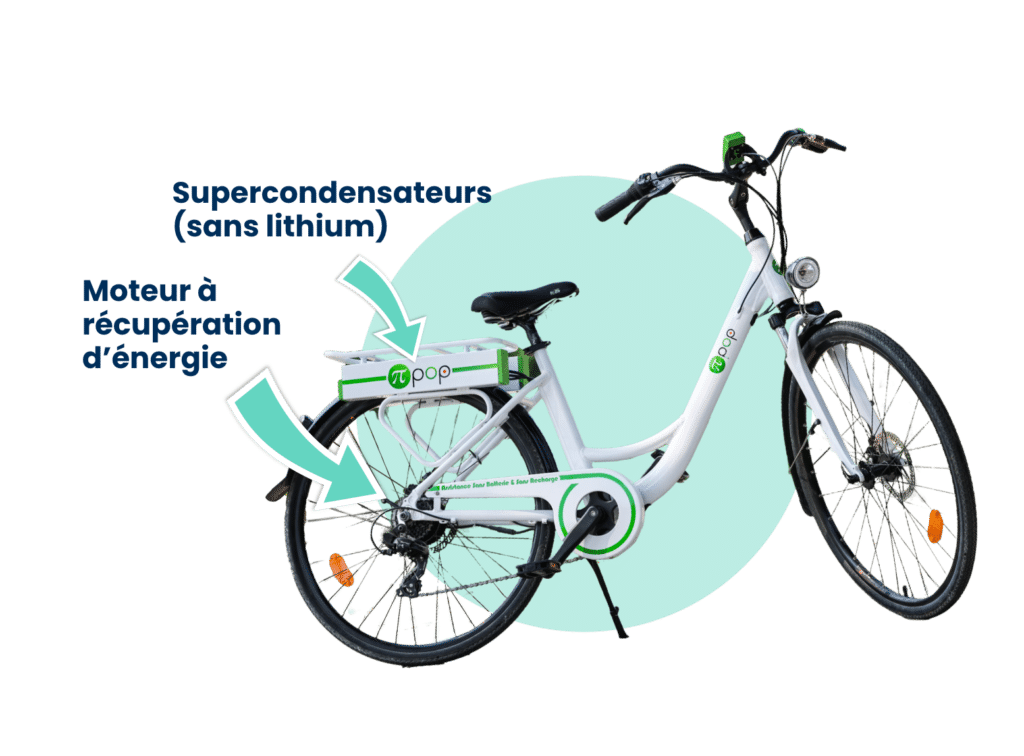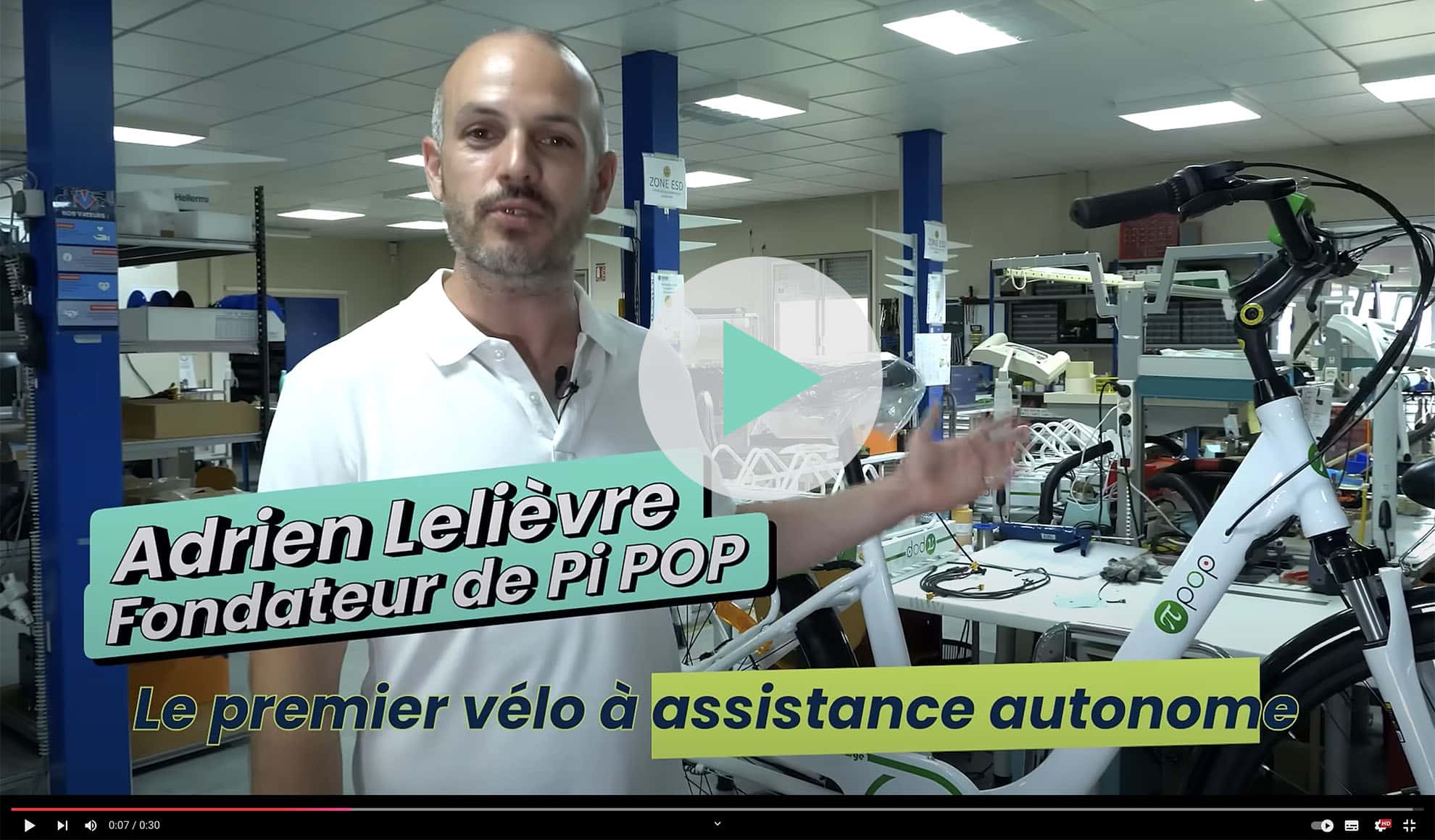Super-capacitor bikes!
They invented the first electric bike without a battery 🚲 🔋
(Major brands are paying attention)
Every e-bike hides an uncomfortable truth:
↳ Europe imports 1.2 million e-bikes yearly
↳ Each one needing lithium batteries
↳ Most die within 5 years and join millions in landfill
Adrien Lelièvre discovered something revolutionary.
Supercapacitors could replace these batteries completely
Pi-Pop was born
How does it work:
↳ Store energy when coasting downhill or braking
↳ Release it instantly when needed on uphill climbs
↳ Enough boost for a 50 metre hill climb (Enough for 80% of EU cities)
The breakthrough? Supercapacitors instead of batteries:
↳ Made from carbon and aluminum which can be easily recycled
↳ Zero charging time
↳ Lasts 15 years (triple battery life)
The impact could be massive:
A) Saves 500,000 liters of water per bike
B) Reduces CO2 by 15 tons per unit
C) Creates 30+ local manufacturing jobs
From questioning battery dependence… to potentially revolutionising sustainable transport
Sometimes the best innovations come from asking what if we need less, not more?
Meet the Pi-Pop, the electric bike you never need to charge (because it has no battery)
It’s like a regular bike, but better

Electric bikes are hot and getting hotter in the U.S. In response, e-bike manufacturers frequently introduce new models, all powered by rechargeable lithium-ion batteries. French manufacturer Pi-Pop breaks from traditional electric bike design by using a power source you never need to recharge.
The eponymous Pi-Pop electric bicycle, now in the third generation, gets riding power assistance from a supercapacitor that charges while you ride. Like most electric cars, e-bikes with geared or direct drive hubs can regain energy on the go from regeneration while braking. An electric motor reverses energy flow during regeneration, directing the flow back into a battery.
With Pi-Pop e-bikes, which do not have batteries, regeneration is the only way the onboard supercapacitor gains energy. According to the company, a rider pedaling a Pi-Pop e-bike on flat ground regenerates moderate energy by using a small portion of the rider’s pedaling power to recharge the supercapacitor. Riding the bike downhill when the rider doesn’t need to pedal as hard to maintain speed regenerates more energy than flat ground travel. Applying the Pi-Pop’s brakes restores the greatest energy to the supercapacitor.
Supercapacitors have several advantages over batteries, primarily charging and discharging speeds and life span. Supercapacitors can store and release energy ten times faster than batteries. Rechargeable batteries have an expected cycle life of 500 to 10,000 charges, but a supercapacitor can be recharged millions of times. Batteries can deliver power over a more extended period between recharging. Still, the superior speed with which a supercapacitor recharges through regeneration can eliminate the need to plug into a power supply.
Reliability of the Pi-Pop
With the Pi-Pop’s supercapacitor energy regeneration system, there’s no question of range per charge because the e-bike recharges when you’re pedaling or braking. You’ll only use more energy than you regenerate when pedaling uphill.
The Pi-Pop conforms to the European standard for Level I e-bikes, which means the maximum speed is limited to 25 KMPH (15.5 MPH) with power-assisted pedaling only. The Pi-Pop has no twist or thumb throttle, so you’ll need to pedal for power assistance. The bike’s Aikema electric motor and regenerator are rated at 250 watts and 45 Newton meters of torque. That may not seem like much power, but it’s appropriate given the bike’s roughly 48-pound weight and low-by-U.S.-standards top speed.
You can shift through seven gears with a Shimano RevoShift shifter and a Shimano Tourney derailleur, all brand-name parts. The adjustable Zoom front fork has up to 45mm travel, which is certainly enough for a bike that won’t be used as an electric mountain bike and rock jumper. The Tektro mechanical disc brakes with 180mm disc rotors are more than adequate.
The Pi-Pop bike is available in one size with a step-through aluminum frame in white with green accents. There are no other frame sizes, styles, or color choices. Fenders, mudflaps, a kickstand, a headlamp, and a rear rack are all standard.
If an e-bike that never needs recharging is appealing, you can only buy the Pi-Pop at the company factory on the banks of the Loire River in Olivet, France. The price is 2,450 euros or about $2,600 U.S.


